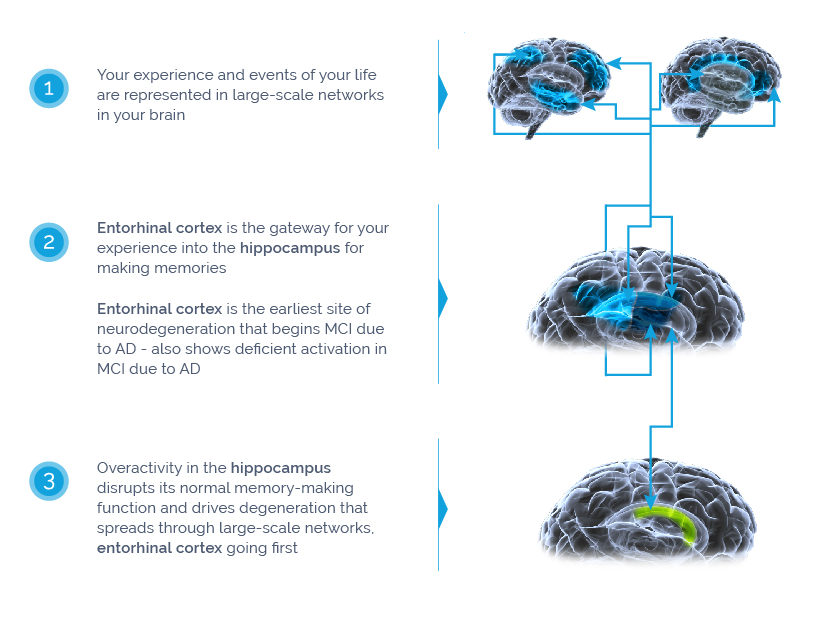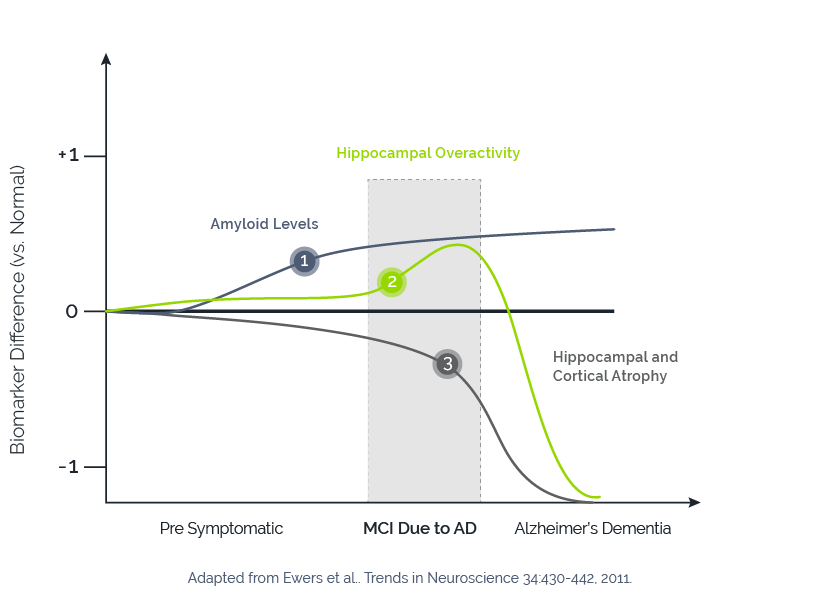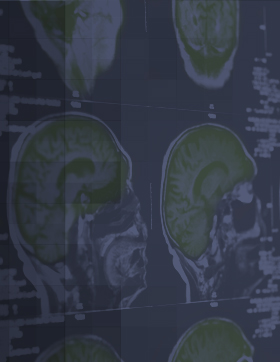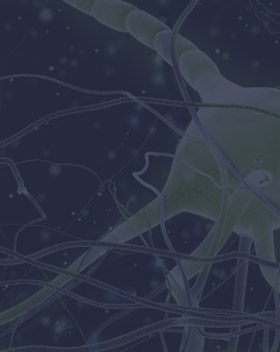
Hippocampal overactivity is a key driver of MCI due to AD: We believe that restoring the entorhinal cortex-hippocampal network is critical for treating MCI due to AD and controlling further progression to dementia.
Our novel pipeline of therapies for neurological and psychiatric disease is based on the decades of research at Johns Hopkins University and leading research centers worldwide showing that neural overactivity contributes to cognitive impairment, in CNS neurological and psychiatric disorders.
Neural overactivity in the hippocampal memory system is a characteristic feature of amnestic mild cognitive impairment due to Alzheimer’s disease (MCI due to AD), the earliest symptomatic stage characterized by memory loss. Overactivity detected by brain imaging predicts the extent of neurodegeneration in the earliest stages of MCI due to AD and clinical progression to Alzheimer’s dementia.
Many investigations, including publications from other scientists, have studied the benefit of targeting excess neuronal activity in basic research models of Alzheimer’s disease. Clinical studies have also shown the close coupling of hippocampal overactivity with clinical and cognitive status across the spectrum of aging and early phases of Alzheimer’s disease.
The Hippocampus is Part of a Neural Network Involved in Creating Lasting Memories

Brain Network Dysfunction in MCI due to AD Predicts Progression to Alzheimer’s Dementia
Hippocampal overactivity, the distinguishing characteristic of MCI due to AD, has been shown to be the best predictor of subsequent cognitive decline and conversion to Alzheimer’s dementia. Entorhinal cortex neurons are the first to degenerate in Alzheimer’s disease, beginning in MCI due to AD, the symptomatic pre-dementia stage of Alzheimer’s.
We believe that restoring the entorhinal cortex-hippocampal network activity is critical for symptomatic relief in MCI due to AD and controlling further progress to Alzheimer’s dementia.
MCI Due to AD is the Optimal Disease State to Intervene and Alter Disease Progression

Additional publications from other scientists also studied the benefit of targeting excess neuronal activity in the hippocampus in basic research models of Alzheimer’s disease.
Ongoing AGB101 Program
Our hope for MCI clinical stage program is to use AGB101 to treat MCI due to AD.
Learn more about our clinical stage program at hope4mci.org.
Learn more from our Publications page.


